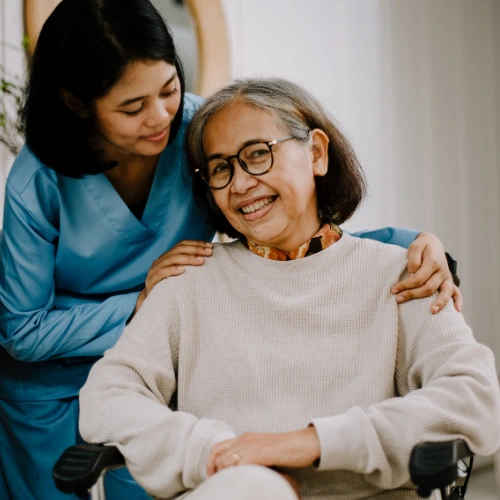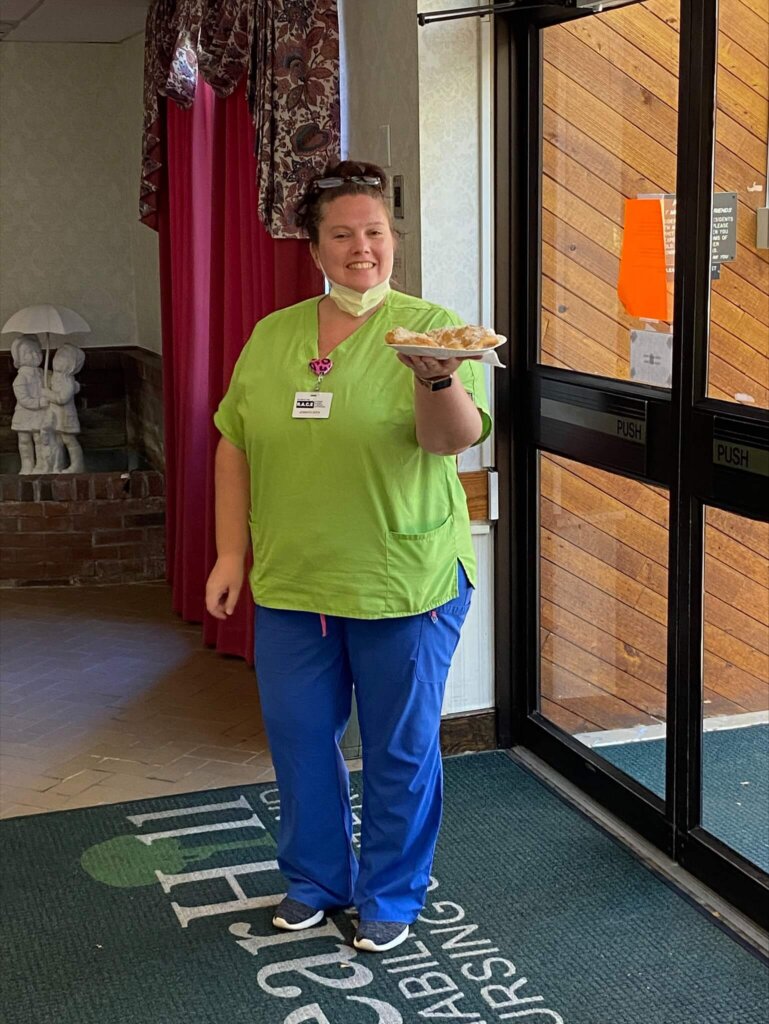Interview Question: Why Do I Want to Be a Caregiver? (The Best Answer)
Let’s dive into an important question that often arises during interviews for caregiver positions: “Why do you want to be a caregiver?” It may seem like a straightforward question, but crafting the best answer requires careful consideration and a genuine passion for the role. In this blog post, I will share with you the key aspects of a winning response, give some examples, and provide valuable insights to help you ace your next caregiver interview. So, let’s get started!
Passion and Empathy

Being a caregiver is not just a job; it’s a calling. The best answer to this question starts with expressing your genuine passion for helping others and showcasing your innate empathy. Caregiving requires more than just physical assistance; it demands emotional support and genuine care for the well-being of individuals in need.
Example
Personally, I’ve always had a natural inclination to care for others. Growing up, I witnessed my grandparents aging and requiring assistance with daily activities. Through those experiences, I developed a deep appreciation for the impact of compassionate caregiving. It brings me immense joy to offer a helping hand and be a source of comfort for those who need it most.
Making a Difference

Another essential aspect to include in your answer is the desire to make a positive difference in someone’s life. Caregivers have a unique opportunity to enhance the quality of life for their clients, providing a sense of purpose and fulfillment.
Example
I firmly believe that each one of us has the power to create positive change in the world. As a caregiver, I can directly contribute to improving someone’s daily life. Whether it’s helping with personal care, running errands, or engaging in meaningful conversations, the impact of even the smallest gestures can be profound. Seeing the smiles on their faces and knowing that I’ve made a difference is incredibly rewarding.
Building Relationships and Connections

Caregiving is not just about meeting physical needs; it’s about building genuine connections and fostering meaningful relationships. The best caregivers go beyond their professional duties and establish rapport with their clients, treating them as individuals with unique stories and experiences.
Example
One of the most memorable experiences I had as a caregiver was with a delightful elderly woman named Mrs. Johnson. During our time together, I learned about her life, her passions, and her dreams. We shared countless laughs, and I became not only her caregiver but also her friend. Building these connections is what makes caregiving truly special and enables me to provide personalized care tailored to each individual’s needs.
Continuous Learning and Growth

The field of caregiving is constantly evolving, and the best caregivers recognize the importance of ongoing learning and professional growth. Demonstrating a commitment to improving your skills and staying up-to-date with industry developments will make your answer stand out.
Example
I am committed to continuous learning and professional growth to provide the best care possible. I regularly attend workshops, read industry publications, and seek opportunities to enhance my knowledge and skills. By staying informed about the latest techniques, advancements, and best practices, I can ensure that my caregiving is of the highest quality and aligned with the evolving needs of the individuals I care for.
Personal Fulfillment and Meaning
One aspect that often goes hand in hand with caregiving is the personal fulfillment and sense of meaning it brings to your own life. Caring for others can be incredibly fulfilling, as it allows you to witness the positive impact you have on someone’s well-being firsthand.
Example
There’s a profound sense of fulfillment that comes from knowing that you’ve played a role in improving someone’s quality of life. Whether it’s helping a client regain their independence, assisting them in achieving their personal goals, or simply being a source of comfort and companionship, the intrinsic reward of caregiving is immeasurable. It provides a deeper sense of purpose and meaning to my own life, knowing that I am making a tangible difference in the lives of others.
Adaptability and Problem-Solving

As a caregiver, you must be adaptable and skilled at problem-solving. This requires the ability to think on your feet, navigate unexpected situations, and provide solutions to challenges that may arise in the caregiving journey.
Example
Caregiving often presents unique challenges, such as sudden changes in a client’s condition or unexpected circumstances that require quick thinking and adaptability. For instance, if a client experiences a medical emergency, it is crucial to stay calm, assess the situation, and take appropriate action, such as contacting emergency services or administering first aid. Being a caregiver means being prepared to handle a variety of situations with confidence and resourcefulness.
Teamwork and Collaboration

Caregiving is rarely a solo endeavor. In many cases, caregivers work as part of a larger team, collaborating with healthcare professionals, family members, and other caregivers to ensure the best possible care for their clients. Highlighting your ability to work well within a team is essential.
Example
Collaboration and effective communication are essential for providing holistic care. I recognize the importance of teamwork and actively seek to foster open lines of communication with healthcare professionals, family members, and other caregivers involved in the care of my clients. By working together, we can provide comprehensive and coordinated care, ensuring that each client’s unique needs are met.
Conclusion
When answering the interview question, “Why do you want to be a caregiver?”, it’s crucial to emphasize your genuine passion, empathy, desire to make a difference, ability to build relationships, commitment to continuous learning, personal fulfillment, adaptability, problem-solving skills, and teamwork. These qualities demonstrate your suitability for the caregiving role and reflect your dedication to providing exceptional care.
Caregiving is a noble and rewarding profession. It offers an opportunity to impact lives, foster connections, and make a genuine difference in the world. So, the next time you find yourself facing this question in an interview, remember to showcase your passion, share meaningful examples, and let your authentic desire to be a caregiver shine through.
Now it’s your turn! What inspired you to pursue a career in caregiving or what qualities do you believe are essential for a caregiver? Share your thoughts in the comments section below and let’s engage in a meaningful conversation!
Remember, being a caregiver is not just a job; it’s a privilege to serve and care for others. Your dedication and compassion can truly transform lives, and I wish you all the best in your caregiving journey!

